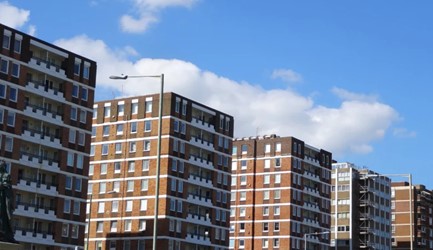How has a London Council Housing provider neglected electrical safety tests for over 36,000 homes since 2018?
A London Council Housing provider has neglected to perform proactive electrical safety tests in its 36,000 homes since at least 2018, putting thousands of residents at potential risk. The Regulator of Social Housing (RSH) has been asked to investigate this serious oversight in housing management, which saw the provider halt proactive electrical safety inspections the year after the Grenfell Tower fire, opting instead for a reactive, ad hoc approach. The cost of this decision is expected to be at least £15 million. This issue was identified as part of an ongoing review of services, which has led to the initiation of a comprehensive programme to complete the outstanding Electrical Installation Condition Reports (EICR).
Standards
In 2020, electrical safety standards were introduced requiring private landlords to have electrical installations in homes inspected and tested by a qualified person at least every five years. Landlords must provide a copy of the EICR to their tenants upon request. The government has also been considering similar mandatory requirements for the social housing sector, proposing mandatory checks on electrical installations every five years and a legal obligation to obtain an EICR. These proposals were part of a 2022 consultation and were included in the Social Housing (Regulation) Act 2023. However, regular electrical safety checks are not yet mandated for social housing, leaving the issue for the next government to address.
Despite the absence of a legal mandate, the code of practice for managing electrotechnical care recommends that electrical installations in domestic tenanted properties be inspected and tested every five years, resulting in an EICR. This standard aims to ensure tenant safety and mitigate potential risks.
The Need for Effective Management
Instances of non-compliance are not unprecedented. Last year, one London based provider was found to have breached the standard for failing to complete electrical safety reports for 3,500 homes. Similarly, in 2022, another London provider was found to have breached the standard after an investigation revealed that over 10,000 of its domestic properties lacked current electrical condition reports.
The implications of the providers oversight are profound, reflecting systemic issues within their safety and compliance management systems. The reactive approach adopted, i.e. addressing electrical safety only during major works or repairs, has proven to be insufficient. The necessity for a structured and proactive testing management programme as part of a wider safety and compliance management approach is evident, as it directly impacts tenant safety and the integrity of the accommodation provided.
Conclusions
The broader implications for the residential sector should not be ignored. This case highlights the urgent need for the implementation effective safety management systems which ensure that activities such as mandatory electrical safety checks are completed and recorded ensuring all tenants benefit from consistent and rigorous safety checks.
Contact Ark Today
If you would like any further information about the importance of an effective safety management system or would like to find out about Ark's risk, compliance and safety services, get in touch today.
Email: info@arkworkplacerisk.com Tel ; +44 (0)20 7397 1450
Keep up to date with the latest news and guidance by following Ark Workplace Risk on LinkedIn




Leave Comment